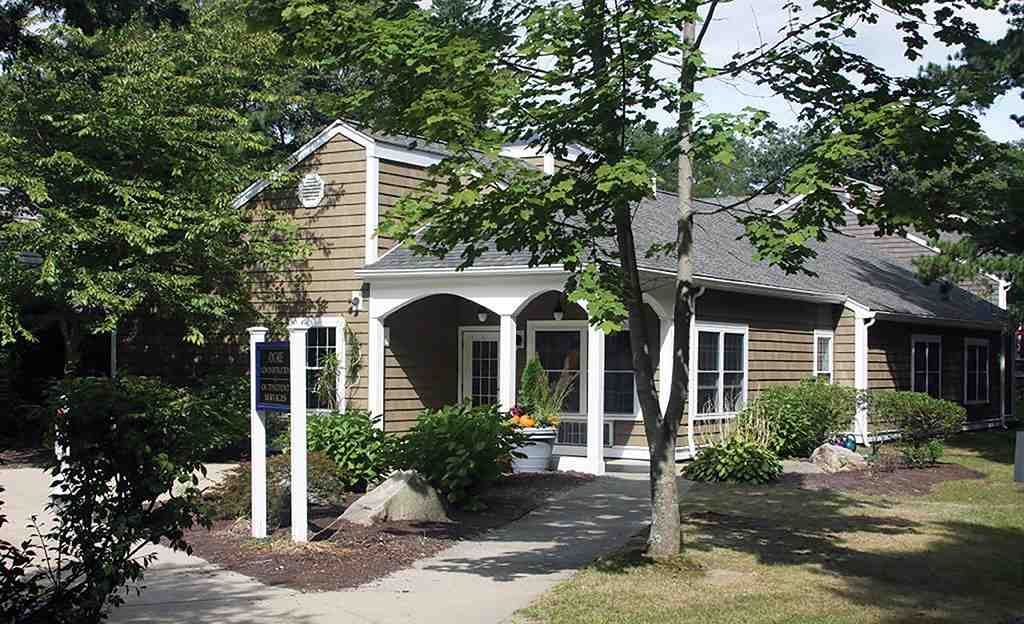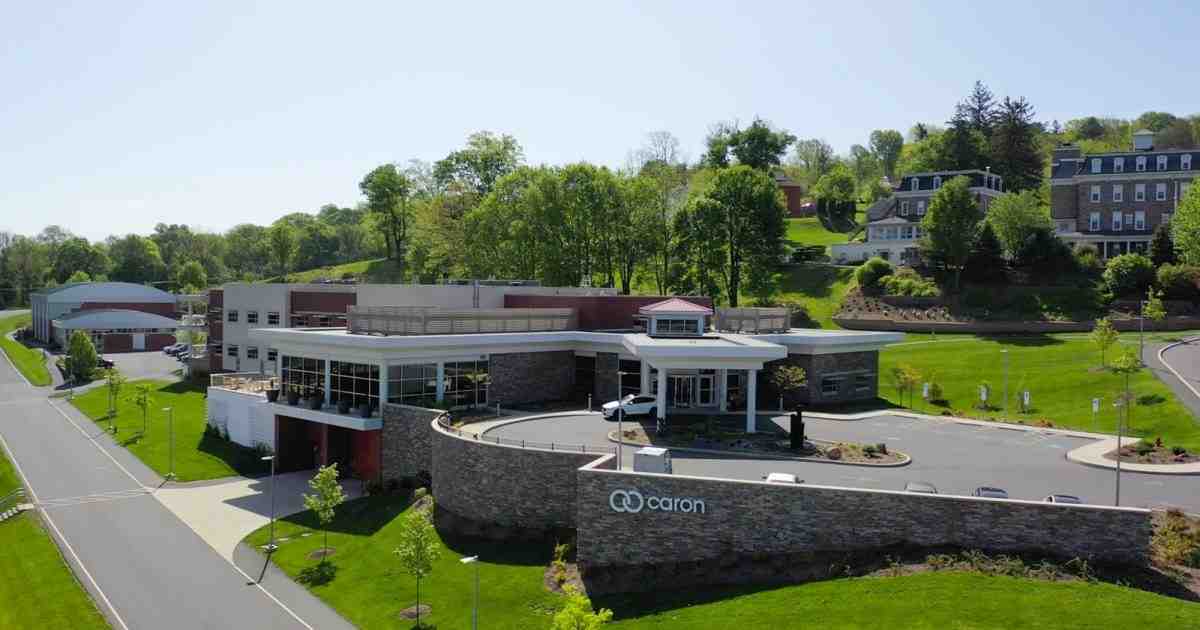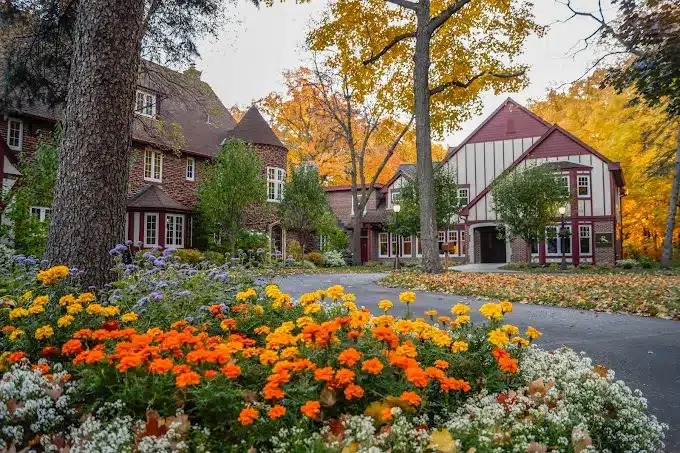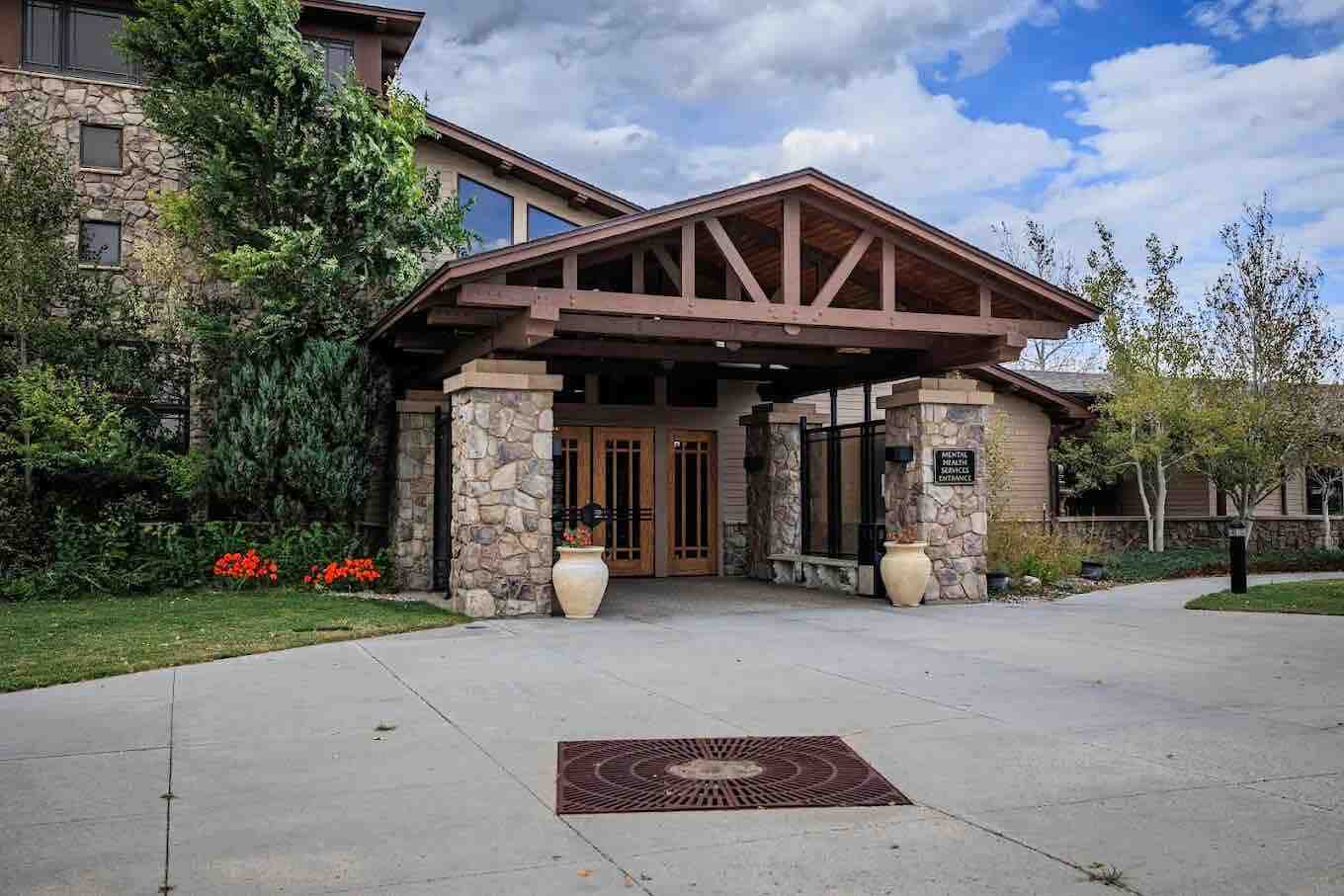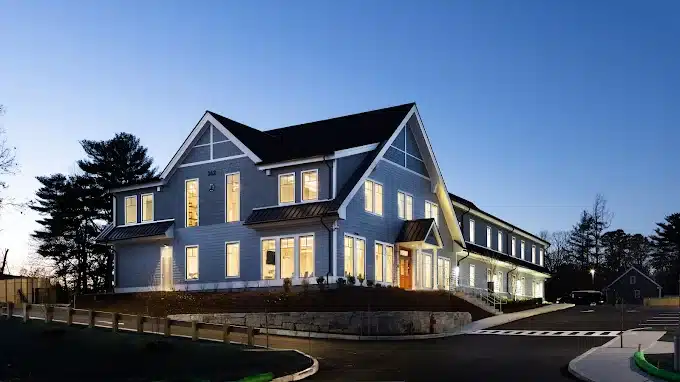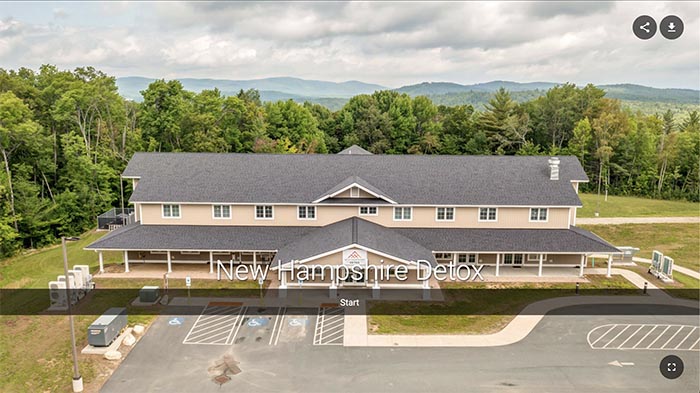
Finding Hope and Healing: Your Guide to Drug Rehab in New Hampshire
Drug rehab New Hampshire offers a range of treatment options for individuals struggling with substance use disorders. Here’s what you need to know:
- Levels of Care Available: Medical detox, inpatient/residential treatment, partial hospitalization programs (PHP), intensive outpatient programs (IOP), and standard outpatient services
- Average Cost: $58,777 for residential treatment; $653/day for inpatient; $62/day for outpatient
- Common Substances Treated: Opioids (including fentanyl and heroin), alcohol, prescription painkillers, marijuana, cocaine, and methamphetamine
- Payment Options: Private insurance, Medicaid, Medicare, TRICARE, sliding-scale fees, and self-pay
- Key Resources: Over 60 accredited treatment centers across the state, with support available through state and local initiatives.
New Hampshire faces significant addiction challenges, including a devastating opioid crisis and the highest per capita alcohol consumption rate in the United States. These issues have impacted communities statewide.
But there is hope. New Hampshire offers a comprehensive network of evidence-based treatment programs set against the serene backdrop of the White Mountains. From medical detoxification to long-term recovery support, the state provides multiple pathways to healing. Treatment centers combine proven clinical therapies like Cognitive Behavioral Therapy (CBT) with holistic approaches such as yoga and meditation.
Finding the right treatment center can feel overwhelming. This guide will walk you through everything you need to know about drug rehab in New Hampshire—from understanding different levels of care to navigating insurance and choosing the right facility.
At Addiction Helpline America, we connect individuals with life-saving treatment resources for Drug rehab New Hampshire. We offer compassionate, confidential guidance 24/7 to help you take the first step toward recovery. Our team understands the unique challenges facing New Hampshire residents and can help you steer the treatment landscape with personalized support.

Basic Drug rehab New Hampshire vocab:
Understanding the Addiction Landscape in New Hampshire
New Hampshire’s breathtaking scenery paints a picture of tranquility, but beneath this beauty lies a sobering reality. The state is battling one of the nation’s most severe substance abuse crises, affecting families in every corner of the Granite State.

The opioid crisis has hit New Hampshire particularly hard. In 2024 alone, the state recorded over 430 opioid-related deaths. A primary driver of this crisis is the rise of fentanyl, a synthetic opioid up to 50 times stronger than heroin. This deadly drug has infiltrated the supply of other substances, turning what users think is a familiar dose into a potentially fatal one.
Heroin and prescription painkillers continue to fuel this epidemic. Many addiction stories begin with a legitimate prescription that spirals into dependency. When prescriptions run out, some individuals turn to street alternatives like heroin. Today, opioid abuse accounts for 89% of all drug overdoses in New Hampshire.
But opioids aren’t the only challenge. Alcohol abuse remains a critical problem. New Hampshire has the highest per capita alcohol consumption in the United States. Between 2019 and 2024, alcohol-related deaths jumped by 55.5%. Nearly one in five adults engages in binge drinking monthly. Other substances of concern include marijuana, prescription drug misuse, cocaine, and methamphetamine, each requiring specialized treatment approaches available through drug rehab New Hampshire programs.
The good news? New Hampshire has launched several initiatives and community resources to fight back against addiction. The state’s Department of Health and Human Services helps residents find treatment agencies and qualified practitioners. Understanding the science behind addiction is also crucial, which is why many programs incorporate evidence-based approaches informed by research from organizations like the National Institute on Drug Abuse.
At Addiction Helpline America, we’ve seen how these community resources work together to create pathways to recovery. While the addiction landscape in New Hampshire presents serious challenges, the state’s commitment to expanding treatment access gives real hope to those ready to take the first step toward healing.
Types of Drug and Alcohol Rehab Programs in New Hampshire
When searching for Drug rehab New Hampshire, you’ll find there’s no one-size-fits-all approach. Treatment centers offer a spectrum of care designed to meet people where they are in their journey. Whether you need round-the-clock medical supervision or flexible sessions that fit around your life, there’s a program that can work for you.

Levels of Care
Recovery often follows a step-down approach, where you gradually move from more intensive support to greater independence.
Medical Detoxification is often the first step, especially for substances like alcohol, opioids, or benzodiazepines. Withdrawal can be dangerous without medical supervision. During detox, which typically lasts 3-10 days, healthcare professionals monitor your health and manage symptoms to keep you safe and comfortable. Some facilities require guests to complete medical detox before arrival.
Inpatient or Residential Treatment provides the foundation for lasting change. In these programs, you live at the treatment center for 30 to 90 days, immersed in a structured, supportive environment away from daily triggers. Recovery becomes your full-time focus.
Partial Hospitalization Programs (PHP) offer intensive care without requiring you to stay overnight. You’ll spend several hours at the center each day and return home or to a sober living environment in the evenings. This works well as a transition from inpatient treatment.
Intensive Outpatient Programs (IOP) provide a middle ground, with treatment sessions a few days per week for a few hours at a time. This allows you to maintain work or family responsibilities while receiving substantial support. Telehealth options are often available, which is helpful for those in rural areas.
Standard Outpatient Treatment is the most flexible option, typically involving weekly therapy and support group meetings. This works best for people with strong support systems or as long-term aftercare.
| Feature | Inpatient/Residential Rehab | Outpatient Rehab (PHP/IOP/OP) |
|---|---|---|
| Setting | Live-in facility, 24/7 supervision and support, removed from daily triggers. | Attend sessions during the day/evening, return home or to sober living, allows maintenance of external responsibilities. |
| Intensity | High; structured schedule, daily therapy, medical monitoring. | Moderate to low; fewer hours per day/week, varying intensity (PHP most intensive, OP least). |
| Duration | Typically 30-90 days, but can vary. | PHP: 2-4 weeks; IOP: several weeks to months; OP: ongoing as needed. |
| Ideal for | Severe addiction, unstable home environment, co-occurring mental health disorders, need for detox. | Moderate addiction, strong support system, stable home, step-down care from inpatient, those who cannot leave work/family. |
Therapeutic Approaches
Effective Drug rehab New Hampshire programs blend various therapeutic approaches to address addiction from multiple angles.
Evidence-based therapies form the backbone of quality treatment. Cognitive Behavioral Therapy (CBT) helps you identify and replace unhealthy thought patterns that lead to substance use. Dialectical Behavior Therapy (DBT) focuses on managing intense emotions, tolerating distress, and improving communication. Some centers also offer specialized therapies like Eye Movement Desensitization and Reprocessing (EMDR) to process traumatic memories that may fuel addiction.
12-Step facilitation remains a cornerstone of many programs, integrating the principles of Alcoholics Anonymous and Narcotics Anonymous to provide a framework for recovery and community support.
Holistic therapies recognize that addiction affects your entire being. Yoga and meditation help calm the nervous system, while fitness and nutrition programs rebuild physical health. Other approaches may include neurofeedback, acupuncture, and art or music therapy to provide creative outlets for expression.
Specialized Programs for Drug Rehab New Hampshire
Many New Hampshire facilities offer specialized programs custom to specific populations and needs.
Dual diagnosis treatment addresses co-occurring substance use disorders and mental health conditions like depression, anxiety, or PTSD. Treating both issues simultaneously is critical for lasting recovery.
LGBTQ+ affirming care creates a safe, non-judgmental space where individuals can focus their energy on recovery without fear of discrimination.
Veterans programs recognize the distinct challenges service members face, such as combat trauma and difficulty transitioning to civilian life. These programs connect veterans with counselors and peers who understand military culture.
Gender-specific treatment for men or women allows individuals to address sensitive issues in a comfortable setting, which can lead to more open and honest communication.
Programs for young adults and teens take developmental needs into account, addressing factors like peer pressure, identity formation, and family dynamics.
At Addiction Helpline America, we can help you find a program that fits not just your addiction, but you as a whole person.
Navigating the Cost of Drug Rehab New Hampshire
Thinking about the cost of treatment can be overwhelming, but Drug rehab New Hampshire is an investment in your health and future. We’ve helped thousands of people find affordable treatment options, and we’re here to help you too.

Average Costs and Payment Options
Treatment costs in New Hampshire vary by program type and duration. The average cost for substance abuse treatment is approximately $58,777 for a full residential program. Inpatient treatment can run about $653 per day, while outpatient programs are more affordable at around $62 per day.
However, very few people pay these full costs out of pocket. Here are some common payment options:
- Private pay is an option if you have savings or family support and prefer to handle costs independently.
- Sliding-scale fees are offered by many facilities, adjusting the cost based on your income.
- Financial assistance programs, such as scholarships or payment plans, can help spread the cost over time. Don’t hesitate to ask facilities about these options.
New Hampshire also has state-funded programs and non-profit organizations that provide low-cost or no-cost services to those who qualify, ensuring financial barriers don’t prevent you from getting help.
Using Insurance for Treatment
Insurance is the most common way to cover treatment. Thanks to the Affordable Care Act, addiction treatment is an essential health benefit, meaning most insurance plans are required to cover it.
In New Hampshire, over 100 rehab centers accept private health insurance. If you’re on Medicaid, 100 centers accept it, often with little to no out-of-pocket cost. Medicare is accepted at 61 facilities, and TRICARE for veterans is accepted at 49 centers.
The most commonly accepted insurance providers in New Hampshire include Cigna, Aetna, Anthem Blue Cross, Blue Cross Blue Shield, United Healthcare (including Optum), Humana, Harvard Pilgrim Health Care, Tufts Health Plan, Guide Health, AmeriHealth, Magellan Health, MultiPlan, and WellCare.
It’s crucial to verify your benefits before you commit. Coverage varies by plan, deductible, and whether a facility is in-network. In-network providers are almost always less expensive.
This verification process can be confusing. At Addiction Helpline America, we offer free, no-obligation insurance benefit checks. We’ll contact your insurance company, figure out what’s covered, and help you understand your options—no charge, no pressure, just clear answers.
Finding the Right Treatment Center
Choosing the right Drug rehab New Hampshire facility is a critical step in your recovery. You’re choosing a partner for one of the most important journeys of your life, and the right fit can make all the difference.

Key Features to Look For
Look for a place where you’ll feel safe, supported, and cared for. Accreditation should be at the top of your list. It tells you that independent experts have verified the facility meets rigorous standards. Look for centers accredited by CARF (Commission on Accreditation of Rehabilitation Facilities) or The Joint Commission. These stamps of approval mean the center is committed to quality care. Also, check if they are recognized by SAMHSA (Substance Abuse and Mental Health Services Administration) and hold LegitScript certification.
Staff credentials represent years of training and expertise. Seek out centers with licensed clinicians, therapists with advanced degrees, medical doctors, and registered nurses. Many New Hampshire facilities also employ staff who are in long-term recovery themselves, offering a depth of understanding that can’t be taught in a classroom.
New Hampshire’s natural location and environment can play a powerful role in healing. The state’s serene landscapes can create a sanctuary where you can focus on yourself without the triggers of everyday life.
Amenities support the hard work of recovery. Private rooms, nutritious meals, fitness facilities, and yoga studios support the mind-body connection. These aren’t luxuries—they’re tools that support your journey.
The Admissions Process for Drug Rehab New Hampshire
Taking the first call can be intimidating, but admissions teams are trained to make the process as straightforward as possible. It usually starts with a confidential phone call where you can speak honestly about your situation.
Next is a thorough initial assessment, where the clinical team will ask about your substance use history, mental health, and medical background to match you with the right level of care.
The insurance verification step is handled by dedicated staff who will contact your insurance company, determine your coverage, and explain any potential costs. Many centers offer payment plans if insurance doesn’t cover everything.
Once logistics are sorted, intake coordination begins. The team will help you choose an admission date, arrange transportation if needed, and provide clear instructions on what to bring and what to leave at home.
Aftercare and Long-Term Recovery Support
Graduating from a primary treatment program is the starting line for building a new life. Strong aftercare planning is what turns short-term sobriety into lasting recovery.
Sober living options provide a bridge between intensive treatment and independent living. These homes offer a drug- and alcohol-free environment with structure and accountability, where you live with others committed to recovery. Finding safe, supportive recovery housing is a key step for many.
Alumni programs create lifelong connections with people who understand your journey. They are your recovery family, people you can call on for support.
Peer Support Specialists, many of whom are in recovery themselves, can offer practical advice and genuine empathy.
Step-down care involves gradually transitioning from more intensive programs to weekly therapy or monthly check-ins. This gradual reduction in intensity builds confidence while maintaining a safety net. Recovery isn’t a solo journey, and the right support system makes all the difference.
Support for Families and Loved Ones
When someone you love struggles with addiction, it can feel like you’re carrying the weight of their pain. Addiction ripples through entire families, creating tension and leaving everyone feeling helpless. But you don’t have to face this alone. New Hampshire offers resources designed to support families and loved ones.
Family involvement is often essential to lasting recovery. Many Drug rehab New Hampshire programs include families in the healing process. Family therapy sessions help improve communication, address past hurts, and teach healthier ways of supporting each other. Some programs offer intervention services, family visiting hours, and workshops to help everyone understand the recovery process.
Educational workshops can be eye-opening, helping families understand that addiction is a disease, not a moral failing. You’ll learn how substances change the brain and how you can help without accidentally enabling.
Many families unknowingly fall into patterns of codependency—covering up consequences or sacrificing their own well-being. Learning to set healthy boundaries is not about being uncaring; it’s about loving someone enough to let them face the consequences of their actions while you also take care of yourself.
Support groups provide a unique form of understanding that comes from talking to people who truly get it. Al-Anon is for those affected by someone’s alcohol use, while Nar-Anon serves those affected by drug use. In these groups, you’ll find people who understand the sleepless nights, broken promises, and constant worry.
When you need immediate help during a crisis, there are 24-hour crisis hotlines ready to support you. The National Suicide Prevention Hotline provides free, confidential support anytime for people in distress.
Taking care of yourself isn’t selfish—it’s necessary. As your loved one works on their recovery, you deserve support, understanding, and healing too. Whether through therapy, support groups, or reaching out to Addiction Helpline America for guidance, help is available for every member of the family.
Frequently Asked Questions about Drug Rehab in New Hampshire
When you’re considering Drug rehab New Hampshire, it’s normal to have questions. This is a big decision, and you deserve clear answers. Let’s walk through some of the most common questions we hear.
How long is a typical rehab program in New Hampshire?
There’s no one-size-fits-all answer. The length of treatment depends on your unique situation, including the severity of the addiction, substances used, and any co-occurring mental health challenges.
- Detox is the shortest phase, usually lasting 3 to 10 days, to safely manage withdrawal.
- Inpatient or residential programs typically run from 30 to 90 days, though some people benefit from longer stays.
- Outpatient programs vary widely. A Partial Hospitalization Program (PHP) might last a few weeks, while an Intensive Outpatient Program (IOP) can continue for several months. Standard outpatient therapy can be ongoing as part of long-term recovery.
The key is finding the right amount of time for you to build a solid foundation for sobriety. Your treatment team will work with you to determine the appropriate duration.
Why is the opioid crisis so severe in New Hampshire?
This is a question that weighs heavily on many families. The state’s opioid crisis is the result of a perfect storm of circumstances.
- Geography plays a role. New Hampshire’s location and access to major highways make it vulnerable to drug trafficking.
- The overprescribing of pain medications in past decades led many to dependency. When prescriptions became harder to get, some turned to street alternatives like heroin or fentanyl.
- Economic struggles in certain communities can contribute to feelings of hopelessness, which may lead to substance use as a coping mechanism.
- The rise of fentanyl has been a game-changer. This potent synthetic opioid is increasingly mixed into other drugs, often without the user’s knowledge, leading to a high number of fatal overdoses.
The good news is that New Hampshire is fighting back with state-level initiatives and a growing network of Drug rehab New Hampshire facilities offering life-saving care.
What happens after completing a primary rehab program?
Finishing your primary treatment program is a huge accomplishment, but it’s the beginning of your recovery journey. What comes next is aftercare, which is essential for maintaining long-term sobriety.
- Most people transition to a less intensive level of care, such as moving from inpatient to an outpatient program. This step-down approach allows you to practice new skills with continued professional support.
- Sober living homes are incredibly valuable during this transition. These structured, drug-free environments provide accountability and peer support as you gradually take on more responsibilities. Finding appropriate recovery housing is a key part of many aftercare plans.
- Support groups become a lifeline for many. Alcoholics Anonymous (AA) and Narcotics Anonymous (NA) meetings offer a community of people who understand what you’re going through and a proven framework for staying sober.
- Continued therapy helps you work through underlying issues and develop stronger coping mechanisms for life’s challenges.
- Building your recovery network means surrounding yourself with sober friends, supportive family, and professionals who support your journey.
At Addiction Helpline America, we don’t just help you find treatment—we’re here to support you through every phase of recovery, including aftercare planning.
Begin Your Recovery Journey in New Hampshire
If you’re reading this, you’ve already taken a courageous step by seeking information about Drug rehab New Hampshire. That matters more than you might think.
Recovery is absolutely achievable. It’s a reality for thousands of people across New Hampshire who are living proof that healing happens. The Granite State has built a compassionate network of treatment resources designed to meet you where you are, from medical detox to specialized therapies that address the root causes of addiction.
Taking that first step can feel overwhelming, but you don’t have to have all the answers right now. What matters is that you’re here, considering change.
At Addiction Helpline America, we understand that every path to recovery is unique. Our team provides free, confidential support 24/7, helping you steer the treatment landscape in New Hampshire without judgment or pressure. We can match you with a program that fits your needs, insurance, and personal circumstances.
You don’t have to figure this out alone. The conversation is free, confidential, and could be the beginning of the life-changing journey you’ve been hoping for.
Our helpline is 100%
free & confidential
If you or someone you care about is struggling with drug or alcohol addiction, we can help you explore your recovery options. Don’t face this challenge alone—seek support from us.
Programs
Resources
Will my insurance
cover addiction
treatment?
We're ready to help
Find the best
drug or alcohol treatment
center
Are you or a loved one struggling with addiction? Call today to speak to a treatment expert.




